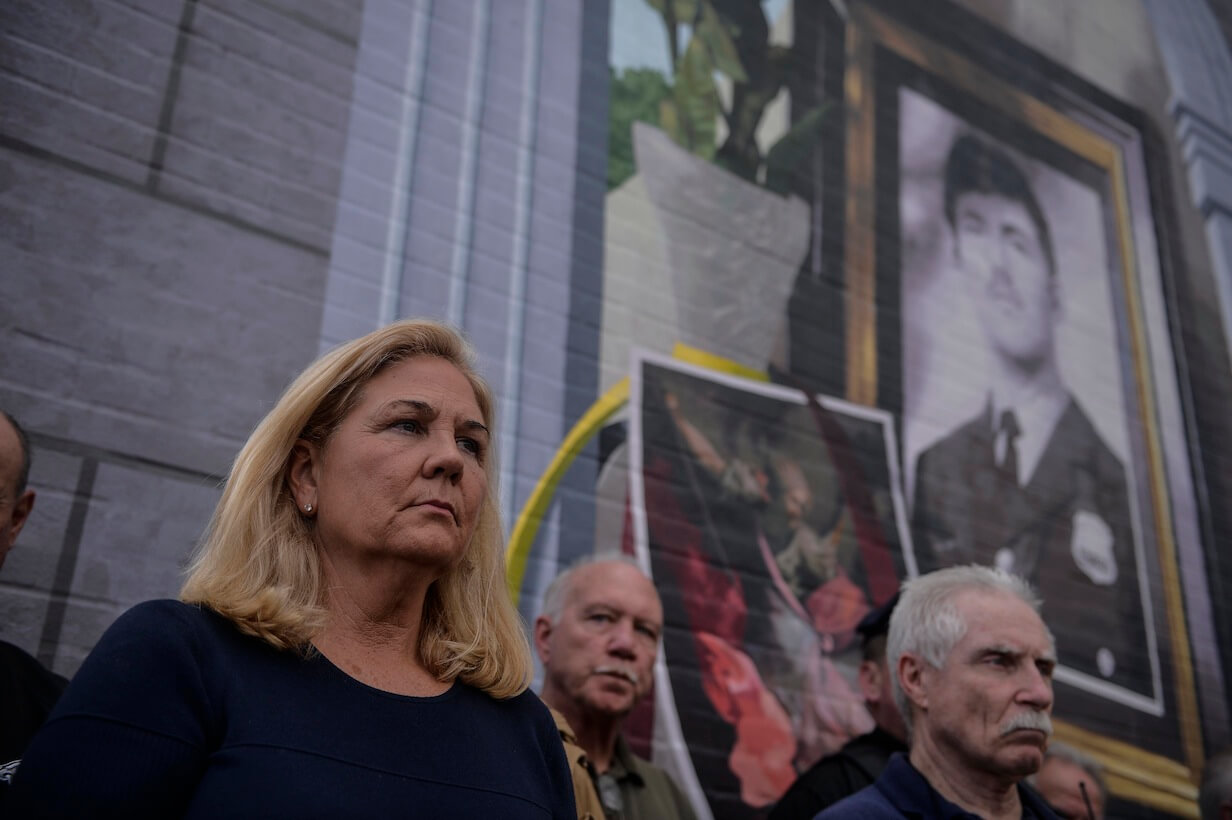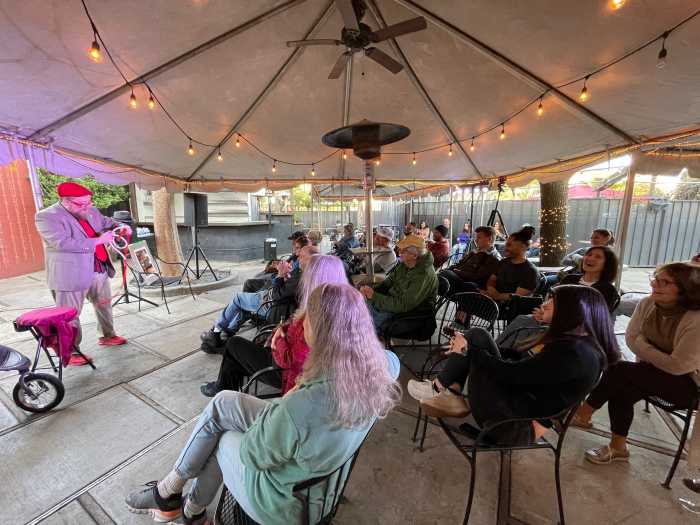It’s one of Philadelphia’s most infamous cases: Mumia Abu-Jamal’s conviction for the 1981 murder of Philly police officer Daniel Faulkner has been the subject of documentaries, books, and international attention.
Now Abu-Jamal’s conviction is expected – yet again – to be resurrected in court, after a Philadelphia judge granted him the right to appeal based on a technicality out of concerns for the appearance of any impropriety.
The appeal does not directly relate to Abu-Jamal’s first degree murder conviction in 1982 – originally sentenced to death, his sentence was commuted to life in prison without parole in 2011, under with consent from the Faulkner family.
But based on U.S. Supreme Court precedent, Philly Judge Leon Tucker found that retired Pennsylvania Supreme Court Justice Ronald Castille tainted decisions on Abu-Jamal’s appeals by ruling on them when he had previously opposed those same appeals while serving as Philadelphia District Attorney from 1986-91, before taking the bench in 1994.
Abu-Jamal’s last appeal of his conviction was rejected in 2012 by a Pa. Supreme Court bench that included Castille.
The decision could lead to a review of every legal step in his case since the mid-’90s, possibly before the current state Supreme Court.
“The slightest appearance of bias or lack of impartiality undermines the entire judiciary,” Tucker wrote in the Dec. 27 decision, which came after months of hearings. “True justice must be completely just without even a hint of partiality, lack of integrity, or impropriety … Petitioner is entitled to an unbiased tribunal, without even the appearance of impropriety.”
Tucker noted in his decision that while Abu-Jamal did not prove Castille’s direct involvement in Abu-Jamal’s prosecution and death sentence — former Pa. Gov. Ed Rendell was D.A. when Abu-Jamal was tried and convicted – but said Castille’s campaign for the Supreme Court in 1993 in part touted the number of defendants he sent to death row.
Castille, retired since 2014, said he disagreed with this appeal:
“They shouldn’t have been able to raise the issue about me, because they never asked me to recuse myself,” Castille, now retired, told The Associated Press. “The court … knew I’d signed off on the appeal, but I had nothing to do with the trial.”
But Abu-Jamal’s supporters quickly claimed victory after Tucker’s decision.
“The people’s movement is responsible for this victory,” Pam Africa, of the International Concerned Family and Friends of Mumia Abu-Jamal, said after the decision was announcing.
“A new appeal opens the door to Mumia’s freedom – a new trial or dismissal of the charges,” the Philadelphia International Action Center, which supports Abu-Jamal, said in a statement. “After 37 years in prison for a crime he didn’t commit, the charges should be dismissed and he should be freed.”
The supporters also held a rally on Dec. 28 outside the office of Philly DA Larry Krasner, calling on Krasner to not oppose Tucker’s ruling and let the appeal go forward. They are planning to hold a rally with the same purpose again at the same location on Saturday, Jan. 5 at noon.
“We are aware of Judge Tucker’s position and we are currently reviewing it to decide a course of action. We have no further comment at this time,” a spokesman for Krasner’s office said on Wednesday.
Lawyers for Abu-Jamal have until the end of January to file an appeal based on Tucker’s decision. They did not immediately respond to requests for comment on planned filings.

Maureen Faulkner at the 2014 dedication of a mural in honor of her late husband, Philly cop Daniel Faulkner, who Mumia Abu-Jamal was convicted of murdering in 1981. (Charles Mostoller)
New appeals for Mumia Abu-Jamal
Maureen Faulkner, the widow of Officer Daniel Faulkner, decried Tucker’s decision on the Fox & Friends talk show.
“To Judge Leon Tucker: I hope you can sleep at night with the decision you made, because you know it was not the right one,” Faulkner said. “Mumia Abu-Jamal shot my husband between the eyes, he executed my husband. … I’m never going to let this go. All over the country, they’re reducing sentences on murderers, they’re allowing them out of prison, and it’s wrong. It’s so wrong.”
But Tucker’s decision was based on a 2016 U.S. Supreme Court decision, which found in Williams vs. Pennsylvania that it was unconstitutional for Castille to have heard appeals as a judge on a case he previously prosecuted.
Faulkner, now a resident of California, had flown to Philadelphia several times in recent months to attend the hearings for this appeal – which were also attended by many Abu-Jamal supporters, who organized rallies outside the courthouse each time. Faulkner was ejected from the courtroom in December for standing up and criticizing Tucker after he announced he would further adjourn the case after a third hearing in early December.
Mumia Abu-Jamal, born Wesley Cook, a former WHYY radio journalist, cab driver and affiliate of MOVE founder John Africa, was convicted of Faulkner’s murder in 1982. Prosecutors said Abu-Jamal ambushed and killed Faulkner during a late-night traffic stop of Abu-Jamal’s younger brother, which had turned violent. Abu-Jamal was arrested at the scene next to Faulkner’s body with a gunshot wound from Faulkner’s gun to the chest, and charged with first-degree murder.
In the ’90s Abu-Jamal bega to rise to a fame after being dubbed a “political prisoner,” who supporters claimed was targeted by law enforcement due to his involvement in black power-related causes. He became an emblem of the flawed criminal justice system, with many calling for his release and summoning him to deliver commencement speeches at various colleges, which he did by tape or telephone from prison.
Additional reporting by Reuters

























